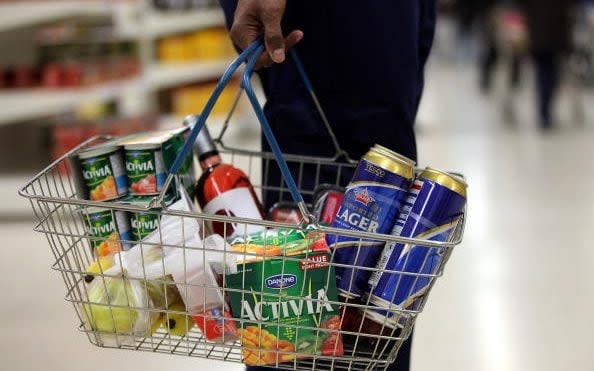Replacing calories with exercise required on food labelling it would ease obesity, Royal Society for Public Health says

Replacing calories with ‘exercise required’ on food labelling it would ease obesity, Royal Society for Public Health has said.
The charity claims that new evidence has shown that labelling food on how much exercise is needed to burn it off, rather than how many calories it contains is a key towards encouraging healthy lifestyles.
This comes after a new study by researchers from Loughborough University which found that Physical activity calorie equivalent or expenditure (PACE) labelling reduced the amount of calories consumed.
They predicted that the system could shave up to around 200 calories per person every day if applied widely, the equivalent of around a can and a half of Coca Cola.
The new form of labelling would mean that a small bar of milk chocolate would show that 42 minutes of walking or 22 minutes of running would be required to burn it off, rather than simply showing it contains 229 calories.
Professor Amanda Daley from Loughborough University said: “The evidence shows that even a relatively small reduction in daily calorie intake (100 calories) combined with a sustained increase in physical activity is likely to be good for health and could help curb obesity at the population level. PACE labelling may help people achieve this.
“It is a simple strategy that could be easily included on food/drinks packaging by manufacturers, on shelving price labels in supermarkets, and/or in menus in restaurants/fast-food outlets.
“Public health agencies may want to consider the possibility of including policies to promote it as a strategy that contributes to the prevention and treatment of obesity and related diseases.”

The study, published in the Journal of Epidemiology and Community Health looked at data from 14 trials looking at the impact of the alternative labelling method on buying and consuming different food and drinks.
They found that less was consumed with fewer calories chosen when PACE was being used compared to other types of labels.
The Royal Society of Public Health said that the new labelling method has been something they have hoped would be introduced for some time, and that the new study gives reputable evidence to back up their call.
Currently many institutions place emphasis on calories when looking at controlling weight, with the NHS providing a calorie checker on their website to inform the public.
Earlier this year the eating disorder charity, Beat, said that mobile apps for calorie counting was contributing to unhealthy behaviours and damaging those wanting to lose weight, rather than helping.
This came after reports of people logging self-harm and punishments for over-eating on apps such as MyFitnessPal and Lifesum.
Professor Amanda Daley said: “We think it is unlikely that PACE food labelling will have unintended consequences such as eating disorders – other types of physical activity campaigns have not been shown to do this.
“We think PACE labelling will remind the public of the importance of good energy balance, and will remind the public of the importance of being active every day.”

 Yahoo News
Yahoo News 